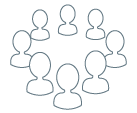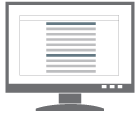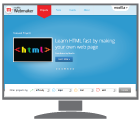


Collectively explore problems and strengths of the open web in regards to believability.

There are thousands of different sources of information online. We can write anything we want and publish it for the whole world to see. What would happen if we published news stories that use subversive biasm to display our own imaginations? We're going to build pages that do just that.
Together, make a list of what each article should have. Start with one story on a topic and see about how you can create more bias. Check other sites for ideas of how things are portrayed--headlines, different colors, photo options, boldings, pull quotes, subheadings, links to different sources. For example, will you leave context out and quote only part of what someone says? Will you include pictures or related stories? In small groups, decide what needs to be part of your biased article.

Have learners research the topic they choose, and change information about it using the list from step 3. Allow them to create a plan for their pages using pens and paper. What colors will they use? What will the layout be like? What images will they use? Invite them to draw sketches of their page.

Have learners use the "Create Your Own HTML page" project to create a page for their bias story. Allow them to collaborate to figure out tags, find mistakes, and tinker around with HTML and CSS.
Extra credit: after building a news story, take a look at the social web and build a Storify of the topic. Consider biasing the Storify in a new way, or try a new challenge: can you make it neutral?
Following the presentations, facilitators should direct participants to other resources in their community or online to learn more about hacking and web design/development. Provide individual constructive feedback during presentations.